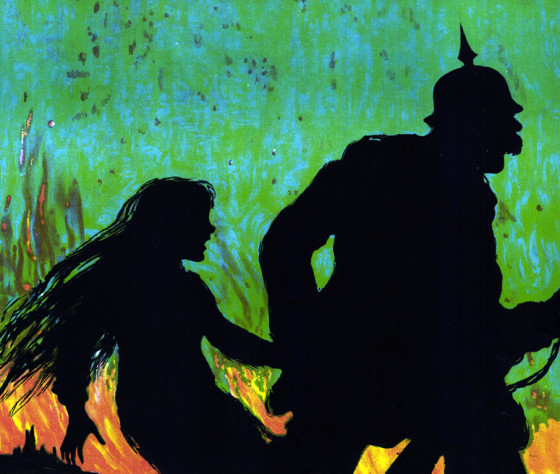
“Napoleon Bonaparte was in effect larger than life. Indeed, among his sources of political power was his ability to promote all these dazzling images of himself.”
By William Nester
CHIEF AMONG Napoleon Bonaparte’s many assets was his spellbinding charisma. The man exuded a charm that inspired zealous devotion and sacrifices from his followers. Arthur Wellesley, the Duke of Wellington certainly knew it. “His hat on a battlefield is worth 40,000 men,” the Iron Duke famously marveled.
To Napoleon’s legions of admirers (and to himself), he was more than just a living legend — he was a one-man pantheon of characters from mythology, literature and history. As a lonely teenager, he was a Young Werther. In Italy, he became a latter-day Hannibal. He assumed the mantle of Alexander the Great while campaigning in Egypt. Back in France as First Consul he was likened to Caesar; as emperor, Charlemagne. His army’s struggles in the Peninsula made him a sort of Sisyphus, while some cast him as a David in his maritime war with the Goliath of Britain’s Royal Navy. His retreat from Russia was comparable to the march of Xenophon, his escape from Elba made him like Odysseus. Finally, his exile on Saint Helena had the tragic pathos of Prometheus.
Napoleon Bonaparte was in effect larger than life. Indeed, among his sources of political power was his ability to promote all these dazzling images of himself.

Power is the ability to get what one wants. One’s power rises with the scale of one’s ambitions and the ability to realize them versus those with conflicting ends and means. That is the conscious assertion of power. Then there is unintended power. Like the Sorcerer’s Apprentice, one’s assertion of power can inadvertently set in motion forces that change the world for the better, the worse, or some mix. By these measures, Napoleon Bonaparte was among history’s most powerful individuals.\
One man’s vision is another man’s myth. Napoleon envisioned a prosperous, peaceful, just European empire headed by France, with him and his heirs as its emperor.
“I wanted deeply to plant our doctrines, our administration, and our codes for Europe’s regeneration,” he wrote. “I had vast and numerous projects all calculated for humanity’s well-being…I have been condemned for having an iron hand, but that ignores my goal…Countless people could have benefited in posterity.”
For a while he came close to achieving that. But ultimately Napoleon failed spectacularly and repeatedly at the art of power until he destroyed his regime, not once but twice! Numerous factors explain why, but Napoleon’s rise and fall boils down to this: His ambitions exceeded his abilities.
The art of power has multiple dimensions but perhaps the most critical is knowing one’s limits. Bloated by hubris, Napoleon grossly exceeded his. He let his military and diplomatic victories warp him. He rejected advice contrary to his prejudices, denigrated his enemies as his inferiors, and even believed himself superior to the destructive power of Russia’s winter.
Napoleon trapped himself in a classic vicious cycle of power. His empire’s practical and idealistic goals conflicted. He extracted ever more taxes and troops in the name of modernity, enlightenment, prosperity, equality, justice and order. For his foreign subjects, the harsh realities trumped the abstract ideals; they saw only increasingly brutal exploitation in French rule, and they longed for liberation even by those who espoused absolute monarchy. Paradoxically, Napoleon’s power became more fragile the more he tried to assert it. The fate of himself and his empire become inseparable. By refusing to share power, he made it more likely that his empire would not survive his own death or even a crushing defeat.

Napoleon is the ultimate romantic hero. His most enduring image is that of the young, lean, fierce-faced general with oversized bicorn and flowing cape on a rearing white stallion with the Alps behind him, pointing to a rock inscribed with his name above those of Charlemagne and Hannibal. This is the Napoleon who championed rather than violated the French Revolution’s ideals; who liberated subjected and exploited peoples rather than subjected and exploited them; who personified not despotism but liberalism, nationalism, transnationalism, and cosmopolitanism. Enchained on the rock of St. Helena, he was the martyr rather than traitor to those great causes. That mythical hero has inspired countless people to struggle to do better and even achieve greatness, and will continue to do so until the end of time. As such perhaps only religious leaders like Moses, Buddha, Jesus, or Muhammad have more powerfully affected how swaths of humanity perceive and act in the world than Napoleon.
Napoleon once said: “Men are only as great as the monuments that they leave behind.” He also once said: “We build success on chimeras and shrug at those who reason.” Both are enduring and inseparable epitaphs for Napoleon’s life and art of power.
 William Nester is the author of Napoleon and the Art of Leadership: How A Flawed Genius Changed the History of Europe and the World. A Professor at the Department of Government and Politics, St. John’s University, New York, he is the author of more than 40 books on history and politics.
William Nester is the author of Napoleon and the Art of Leadership: How A Flawed Genius Changed the History of Europe and the World. A Professor at the Department of Government and Politics, St. John’s University, New York, he is the author of more than 40 books on history and politics.









